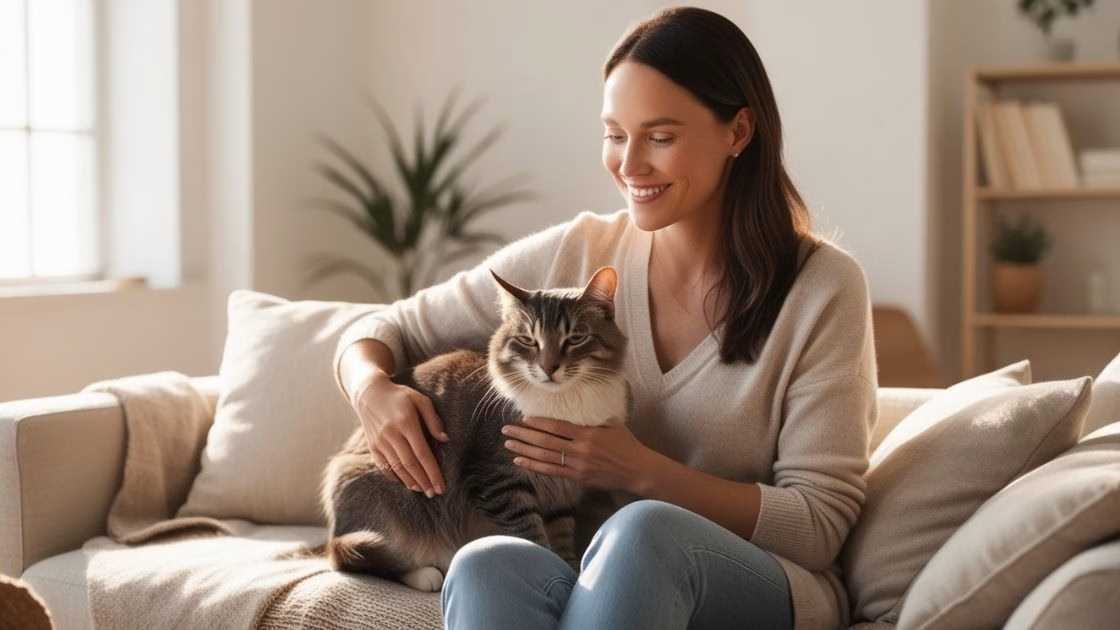Can A Dog With MDR1 Take Doxycycline? When it comes to our pets, each year we are faced with various illnesses and medication choices that can baffle any dog owner.
One topic I’ve found especially important is the MDR1 gene mutation a genetic problem which makes certain drugs including doxycycline dangerous for some dogs.
If you have a Collie or an Australian Shepherd, or any of the breeds with a known predisposition for this mutation, it’s important to understand what it means for your pet.
Well don’t worry; I will take you through it all with carefully explained instructions and tips as to how to help your sweet little pet to the best of your ability.
Key Takeaways
- Although, MDR1 gene mutation alters the manner in which, certain drugs including some of the antibiotics used in this study are metabolized in dogs.
- Like all drugs, doxycycline is safe in dogs with MDR1 mutations if it is given according to veterinarians’ recommendations.
- The herding breeds are the most prone to MDR1 mutations which include Collies and Australian Shepherds.
- Your veterinarian will help you through the safe drugs by carrying out tests on the MDR1 mutation of your pet.
- Never give your canine any medicine without first consulting your vet.
What is MDR1 and Why Does It Matter?
The MDR1 gene which stands for multi-drug resistance 1gene codes for P glycoprotein.
This protein transports certain drugs and toxins from the cells and it is most active in tissues that are vulnerable for instance the brain.
If this gene is mutated in your dog, specifically an MDR1 mutation, then this pump does not function properly, and basically drugs may amass in your pet’s system and become toxic..
How Does the MDR1 Mutation Work?
Dogs with the MDR1 mutation may be:
- Homozygous: They receive the mutated copy from both parents.
- Heterozygous: The phenomenon where the mutation is passed on by a single parent to the youngest generation.
The first, depending on the degree, and both make your dog more susceptible to the potentially bad effects of certain drugs.
Symptoms of Drug Toxicity
- Seizures
- Ataxia (abnormal muscle coordination).
- Visual impairment
- Tremors
- Neurological toxicity
Other bodies which are commonly involved are Collie, Australian shepherd and border collie.
Can Dogs with MDR1 Take Doxycycline?
What is Doxycycline?
Doxycycline is an antibiotic widely used in veterinary medicine to treat a variety of infections, including:
- Manage
- Larimal or heartworm disease (Dirofilaria immitis)
- Respiratory infections
- Lyme disease
- Tick-borne illnesses
In particular, it is tetracycline antibiotic, which serves for the suppression of bacterial protein synthesis.
MDR1 and Doxycycline Interaction
In fact, unlike other drugs that follow mainly the P-glycoprotein mediated efflux from the cells, doxycycline doesn’t depend on this pump. Consequently, it is not generally believed to be toxic in highly toxic form for dogs that have MDR1 mutation. But always consult your vet on when and if you should give your pet any medication at all.
Dosage Considerations
The appropriate dose of doxycycline in dogs is typically according to the weight of the animal. For dogs with the MDR1 mutation, veterinarians may:
- Adjust the dose slightly.
- The fruits should not have any side effect on the dog, thus, closely observe the dog to ensure no side effect arises.
Medications That Are Dangerous for Dogs with MDR1 Mutation
To better understand why doxycycline is safer than some other medications, let’s look at medications that pose significant risks to MDR1-affected dogs:
High-Risk Drugs
- Ivermectin – usually used to treat parasitic infections; it has neurological toxicity.
- Acepromazine – A type of sedative which might cause the pet to be sedated for a long time.
- Erythromycin – resistant antibiotic to some strains with most of the risks associated with antibiotics.
- Chemotherapy Drugs – Including vincristine and vinblastine is used to treat cancerous cells such as myasthenia gravis.
- Loperamide (Imodium) – Available for the management of diarrhoea and has side effects that affect the central nervous system.
Why Are These Drugs Risky?
In dogs with the MDR1 mutation, these drugs pass to the brain where they cause toxicity as there is no functioning P-glycoprotein pump.
Common High-Risk Drugs for MDR1 Dogs
| medication | Purpose | Adverse Effects in MDR1 Dogs |
|---|---|---|
| Ivermectin | Parasite treatment | Neurological toxicity |
| Acepromazine | Sedation | Prolonged sedation |
| Erythromycin | Antibiotic | Gastrointestinal and neurological issues |
| Vincristine | Chemotherapy | Severe toxicity |
| Loperamide | Diarrhea treatment | Neurological toxicity |
Testing for the MDR1 Mutation
If your dog is a herder or has herder mix then getting your dog tested for MDR1 mutation is one of the most logical actions. This genetic test enables you and your veterinarian to understand if your dog has the mutation and which medication you should avoid giving to your dog.
How is Testing Done?
The process for MDR1 testing is straightforward and non-invasive, involving either of the following methods:
- Buccal Swab (Cheek Swab)
One of the non-invasive methods where a small amount of the material is taken by rubbing a swab inside of your dog’s cheek. - Blood Test
The test to diagnose the MDR1 mutation requires a small blood sample usually drawn on a routine vet check on the dog.
Where Can You Test?
Steps for MDR1 Testing
| Step | Description |
| Sample Collection | Buccal swab or blood sample |
| Submission | Send to a veterinary lab or university |
| Processing | DNA analysis to identify the mutation |
| Results | Provided within a few weeks |
What If Your Dog Needs Doxycycline?
Whenever a dog is affected by the MDR1 mutation and one needs doxycycline, the following questions or concerns will crop up.
Thus, doxycycline is not toxic in dogs with this mutation, however, some extra care should be taken for your pet’s welfare. Here’s a step-by-step breakdown of what you should do:
1- Consult Your Veterinarian
It is your vet who best understands the exact health requirement of your dog.
If doxycycline is needed, they will tell you how much you should administer in mg per kilogram of your dog’s body weight, and its breed and physical state. A professional opinion ensures that the medication is rightly and rightly used.
2- Monitor for Side Effects
Although doxycycline is identified as safer for MDR1-affected dogs still they may experience side effects. Keep an eye out for symptoms like:
- Nausea
- Vomiting
- Diarrhea
Contact your veterinarian immediately should any strange behavior or signs be seen, as these can be dealt with before worsening.
3- Adjust Other Medications
When your dog is on multiple drugs, it becomes important that you discuss the list with your veterinarian.
Antacids, calcium supplements or other tetracycline antibiotics may cause an antagonistic effect when used together with doxycycline. Your vet will advise on necessary changes towards reducing such risks.
4- Stick to the Prescribed Dose
Never change the dose yourself, whether your dog seems to be getting better or if side effects show up.
Switching to a different dose without consulting a veterinarian may result in undermedication or, in the case of dogs with MDR1 gene mutation, toxic effects.
Managing MDR1 Dogs: Tips for Pet Owners
Caring for a dog with the MDR1 mutation requires extra vigilance:
- Keep a List of Unsafe Drugs – your veterinarian will be able to educate you on which drugs to avoid.
- Inform All Care Providers – or all dog walkers, sitters, groomers should be informed.
- Monitor for Symptoms – Always observe for clues of drug toxicity even with safe drugs.
- Consider Testing Puppies – Even if, you breed or adopt, testing keeps you ready.
Quick Reference for MDR1 Management
| Action | Reason |
| Testing for MDR1 Mutation | Prevents adverse drug reactions |
| Avoiding High-Risk Drugs | Reduces risk of neurological toxicity |
| Regular Vet Consultations | Monitors health and adjusts treatments |
| Keeping Records | Ensures clear communication with caregivers |
Breeds Most Affected by the MDR1 Mutation
The MDR1 mutation is commonly found in:
- Collies
- Australian Shepherds
- Border Collies
- Old English Sheepdogs
- Shetland Sheepdogs
- German Shepherds
- Slybred herding breed dogs
When one is a owner or a potential owner of one of these breeds, it is highly advised to get the test done.
My Opinion
By my understanding, doxycycline does not seem to be a dangerous drug for the dogs affected by MDR1 mutation as long as it is given and controlled by your vet. In contrast to a number of other drugs that strongly use the P-glycoprotein pump, doxycycline does not raise the risk for toxicity as high.
That’s a relief for those of us who stress over every aspect concerning the heath of our beloved animals. However, in my opinion, you and your veterinarian are teammates, and your veterinarian is your most valuable partner.
They are the ones who know best how to deal with your dog’s situation and who can steer you right for proper treatment. With your input, along with their knowledge, your dog, whether MDR1-positive or not, can be healthy, happy and lead a good life. Yes, that’s right, it is all about belonging to the same team and keeping one’s ears to the ground.
















Leave a Reply
View Comments